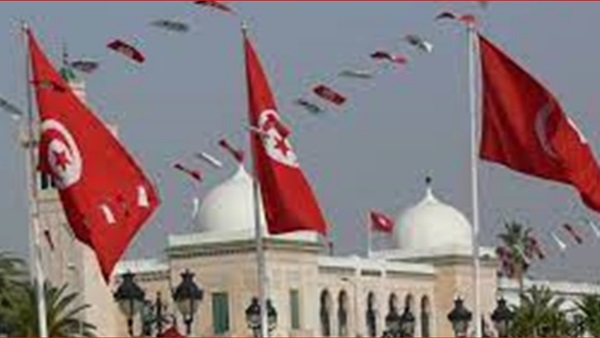Tunisia: Arrest of "Moussi" Renews Criticisms against Kais Saied

The decision to arrest Tunisian opposition politician and
leader of the Free Constitutional Party, Abir Moussi, continues to fuel
controversy in the country.
This is particularly significant as Moussi was one of the
most prominent opponents of the Ennahda Islamist movement and affiliated with
the civil current, thus revitalizing criticism against Tunisian President Kais
Saied, in light of his alleged targeting of political opponents.
The arrest of Abir Moussi took place on the third of
October, on charges of obstructing freedom of work and inciting chaos. Security
forces apprehended her during her protest outside the Carthage Palace.
She had gone there to file a complaint regarding the
previous parliamentary elections, which she believed was marred by
irregularities.
Prior to her arrest, Moussi stated in a recorded message
that her intent in filing the complaint was to prepare for an appeal to the
Administrative Court.
Moussi's Resolute Opposition:
Ever since the Ennahda Islamist movement assumed power in
Tunisia, Abir Moussi has been one of their fiercest opponents. Even after
President Kais Saied's decisions to remove them from power in July 2021, some
believed that Moussi would support his actions. However, she remained on the
opposition's side, criticizing the President's decisions and accusing him of
ruling with an autocratic style.
It's not just Moussi who accuses President Kais Saied;
the Tunisian opposition collectively rejects his management of the country.
They assert that his approach squanders the gains of the Tunisian revolution.
On the other hand, President Kais Saied defends his
governance as a necessary response to the transitional phase Tunisia is going
through.
This period is marked by the challenge of holding the
Ennahda movement accountable judicially, as well as a severe economic crisis
characterized by skyrocketing prices, increased poverty rates, and the
disappearance of essential commodities from markets.
European Union's Concerns:
At the same time, Tunisia faces growing concerns from the
European Union regarding illegal migration waves. This concern is exacerbated
by rising poverty and violence on the African continent.
Inadequate Justifications:
Tunisian opposition, including Moussi, believes that
President Saied's justifications for his individualistic approach to managing
Tunisia are insufficient. In contrast, the President disregards all criticisms,
asserting that he will persist in his course until Tunisia overcomes its current
challenges.
Arrests Amid Continuation:
Amid this ongoing situation, President Saied has arrested
several opposition figures, including Moussi, whom he has often been described
as acting on his orders. This has also included the detention of civil
activists and journalists, raising concerns about the nature of his rule.
Uncertain Fate:
Within this complex landscape, the Free Constitutional
Party accuses President Kais Saied of arresting Moussi to prevent her from
participating in the upcoming presidential elections scheduled for 2024.
Questions loom in Tunisia about the fate of the civil
party, which was one of the primary opponents of Ennahda and played a pivotal
role in the events of July 25.
The party faces significant challenges in the absence of
its leadership. Tunisian analysts question the party's ability to remain
cohesive and continue without a viable alternative leadership to Moussi.







